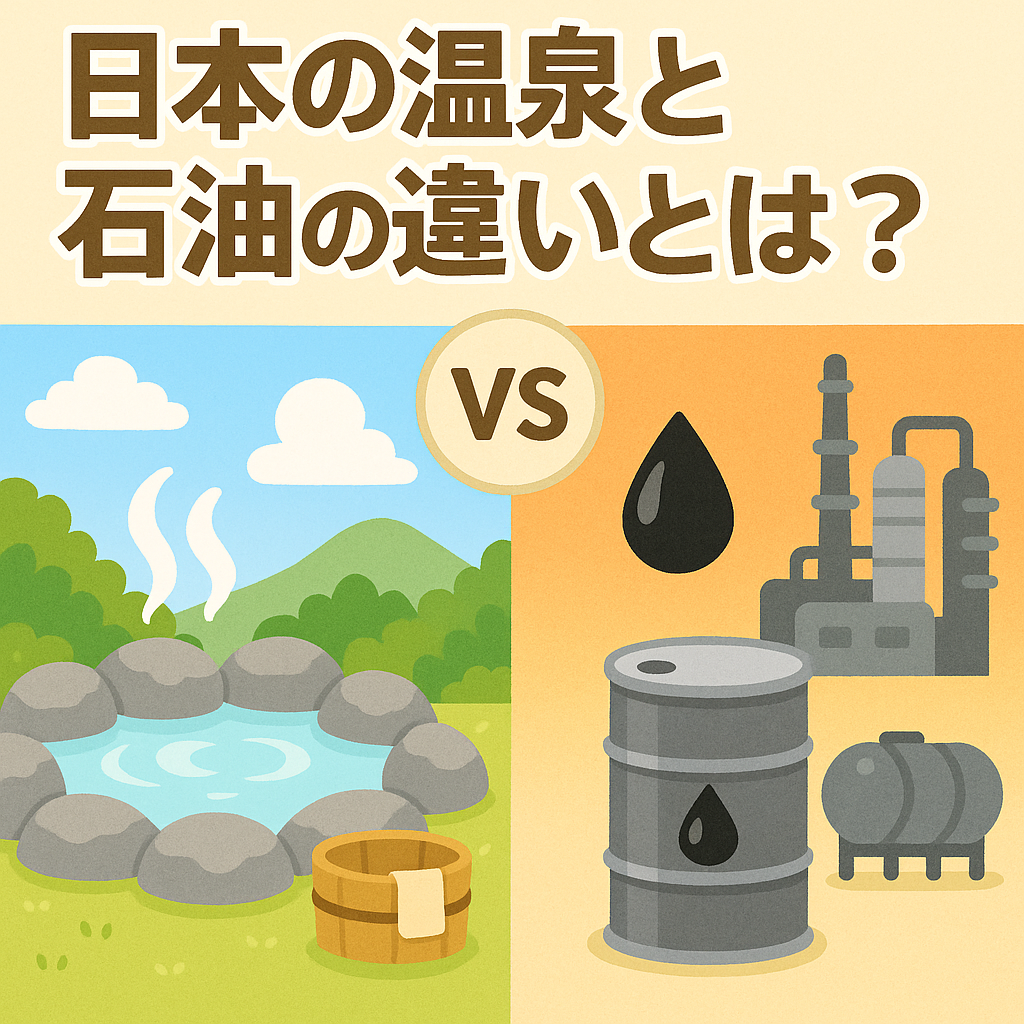♨️ 日本の温泉と石油の違いについて
温泉と石油、一見するとどちらも「地下資源」として分類されますが、その性質や価値は大きく異なります。
ここでは、日本の温泉と石油の違いについて、文化的・経済的・環境的な視点から紐解いていきます。
1. 再生可能性と持続性
石油は、一度採掘すれば再生が難しい「有限資源」です。一方、温泉は地下水が地熱によって温められる自然の循環システムの一部であり、適切に管理すれば持続可能な再生型資源として利用できます。
2. 利用目的の違い
石油は主に燃料や化学原料として使われ、エネルギー供給を支える重要なインフラ資源です。一方、温泉は癒しや健康増進、観光など、人々の生活の質を高める目的で利用されます。
3. 地域社会への影響
石油産業は大規模設備やグローバル市場が中心で、地域との結びつきが希薄な場合があります。温泉は地域の観光資源として活用されることが多く、地元経済や文化の活性化に直結します。
4. 環境負荷
石油は採掘や燃焼による環境負荷が大きいのに対し、温泉は自然エネルギーを活かした低炭素型資源です。ただし、過剰利用や適切な管理がされない場合は、泉源の枯渇や周辺環境への影響も懸念されます。
✅ まとめ
石油は「産業の血液」、温泉は「地域の命の水」ともいえます。
どちらも貴重な地下資源ですが、温泉は自然と共生しながら心身を癒す文化的資源として、これからも大切に守り、活用していく価値があります。
♨️ The Difference Between Japanese Onsen and Petroleum
At first glance, both onsen (hot springs) and petroleum are considered “underground resources,” but they differ greatly in nature, value, and social impact.
Let’s explore the differences between Japan’s onsen and petroleum from cultural, economic, and environmental perspectives.
1. Renewability and Sustainability
Petroleum is a finite resource that cannot be easily regenerated once extracted. In contrast, onsen are part of a natural cycle where groundwater is heated by geothermal energy, making them a potentially renewable resource when managed properly.
2. Purpose of Use
Petroleum is primarily used as fuel or raw material for industrial products, playing a crucial role in energy supply. Onsen, on the other hand, are used for healing, relaxation, and wellness tourism, enriching people’s quality of life.
3. Impact on Local Communities
The petroleum industry tends to focus on large-scale operations and global markets, often with limited connection to local communities. In contrast, onsen are deeply tied to regional economies and culture, directly contributing to local revitalization.
4. Environmental Impact
Petroleum extraction and combustion have significant environmental impacts, including CO2 emissions and ecological damage. Onsen use geothermal energy, making them a low-carbon resource, although improper use can still cause depletion or affect surrounding ecosystems.
✅ Conclusion
Petroleum can be seen as the “lifeblood of industry,” while onsen are the “life-giving water of local communities.”
While both are valuable underground resources, onsen stand out as a cultural asset that promotes harmony with nature and supports human well-being, deserving careful protection and sustainable use for the future.

